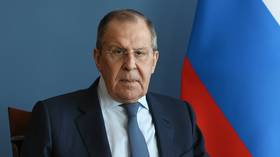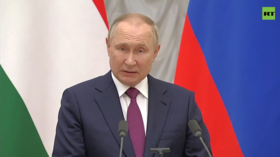Moscow tells US and NATO to check their privilege on security

The responses to its security proposals that Russia has received so far from the US and NATO demonstrate that Moscow and the western nations have fundamental differences in their understanding of how European security works, Russian Foreign Minister Sergey Lavrov said in a statement on Tuesday.
Moscow maintains that a “principle of equal and indivisible security … is fundamental to the entire European security architecture,” Lavrov said, adding that “either there is security for all or there is no security for anyone.”
The principle was formulated in the OSCE Charter for European Security signed at the Istanbul summit in 1999 and later reaffirmed at the Astana summit in 2010.
However, according to Lavrov, the US and its allies continue to pick out only those elements that contribute to their own “exclusive” security as NATO members and justify what the minister called the bloc’s “irresponsible expansion.”
“The Istanbul Charter provides that each OSCE participating state has [an] equal right to security, and not only NATO countries that interpret this right as an exceptional privilege of membership in the ‘exclusive’ North Atlantic club,” he said.
Despite expressing their readiness for dialogue, the western nations “deliberately avoid” mentioning these “inconvenient” principles and prefer to rely on documents that do not contain it, like the 1990 OSCE Paris Charter for New Europe, Lavrov said.
What Russia seeks is that the western nations acknowledge the principle under which no state in Europe can enhance its own security at the expense of others, Lavrov explained. As of now, he argued that NATO aspires to have “military supremacy and the use of force bypassing the prerogatives of the UN Security Council.”
What Russia wants now is a “frank clarification” of the US, NATO, and the European nations’ positions on collective security.
“We want to receive a clear answer to the question [of] how our partners understand their obligation not to strengthen their own security at the expense of the security of other states,” Lavrov said. The Russian foreign ministry sent letters to the top diplomats of the US, Canada, and “several European countries” and expects them to provide answers “in the national capacity.”
At the same time, he said that these letters were not a response to the US de-escalation proposals, which are still being discussed by Russian officials.
Lavrov’s statement came as Russian President Vladimir Putin said on Tuesday that the US response to Russia’s security initiatives reveal that Moscow’s “fundamental” concerns were ignored by Washington.














